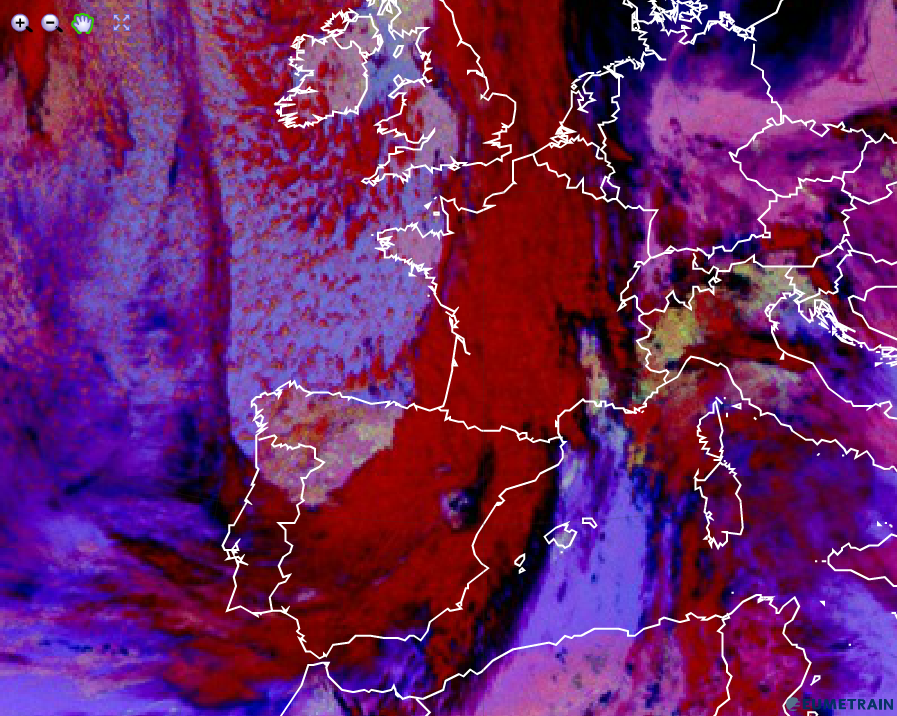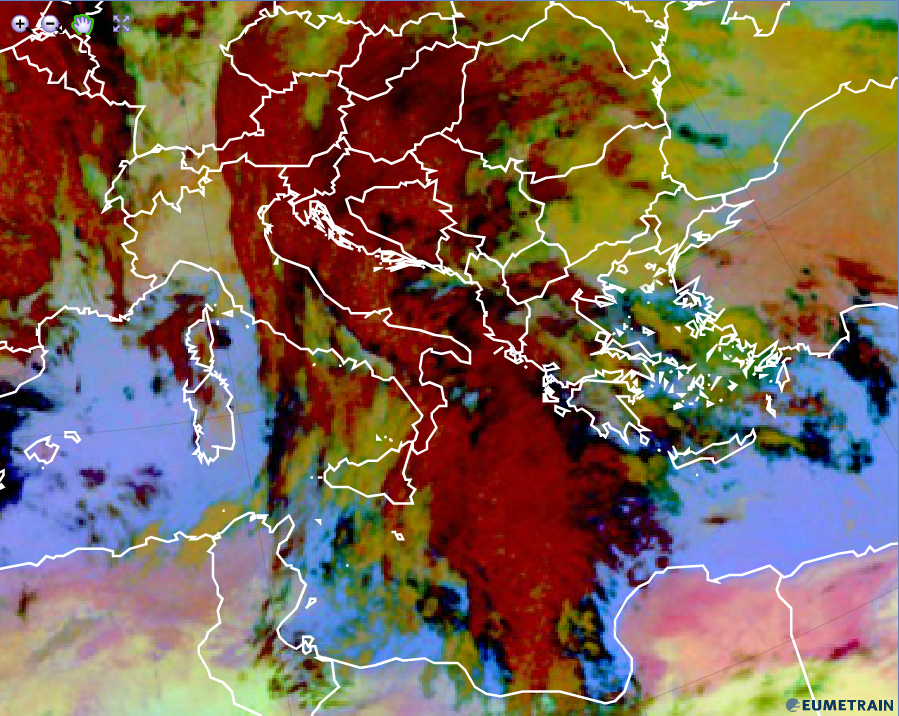dark red
High opaque clouds depict in dark red colours in the Night Microphysics RGB images.
The red colour stems from the brightness temperature difference (BTD) of MSG channels IR12.0 and IR10.8. The used colour scale reaches from -4 (black) to +2 degrees (intensive red). As both channels show approximately the same temperature (i.e. BTD ~ 0), the resulting red colour is of medium intensity.
The contribution of the green colour is small as the BTD between the window channel IR10.8 and the absorption channel IR3.9 is small. As most of the measured radiance comes from high levels, the CO2 absorption at 3.9 micrometer is small.
The blue contribution from channel IR10.8 is small due to the very cold cloud tops.

Night Microphysics RGB from 7 February 2016, 00:00 UTC
Explanation of the dark red colour of high opaque clouds in the Night Microphysics RGB (see the recipe):
• In case of high opaque clouds, only the BTD (IR12.0 - IR10.8) contributes with the red colour beam.
High opaque clouds depict in dark red colours in the Dust RGB images.
The red colour stems from the brightness temperature difference (BTD) of MSG channels IR12.0 and IR10.8. The used colour scale reaches from -4 (black) to +2 degrees (intensive red). As both channels show approximately the same temperature (i.e. BTD ~ 0), the resulting red colour is of medium intensity.
The contribution of the green colour is small as the BTD between both window channels IR10.8 and IR8.7 is small.
The blue colour contribution from channel IR10.8 is small due to the very cold cloud tops.
The Dust RGB image below shows high reaching opaque clouds (red) over the Mediterranean Sea, the Adriatic Sea and Central Europe.

Dust RGB from 10 January 2016, 00:00 UTC
Explanation of the dark red colour of high opaque clouds in the Dust RGB (see the recipe):
In case of high opaque clouds, only the BTD (IR12.0 - IR10.8) contributes with the red colour beam.


